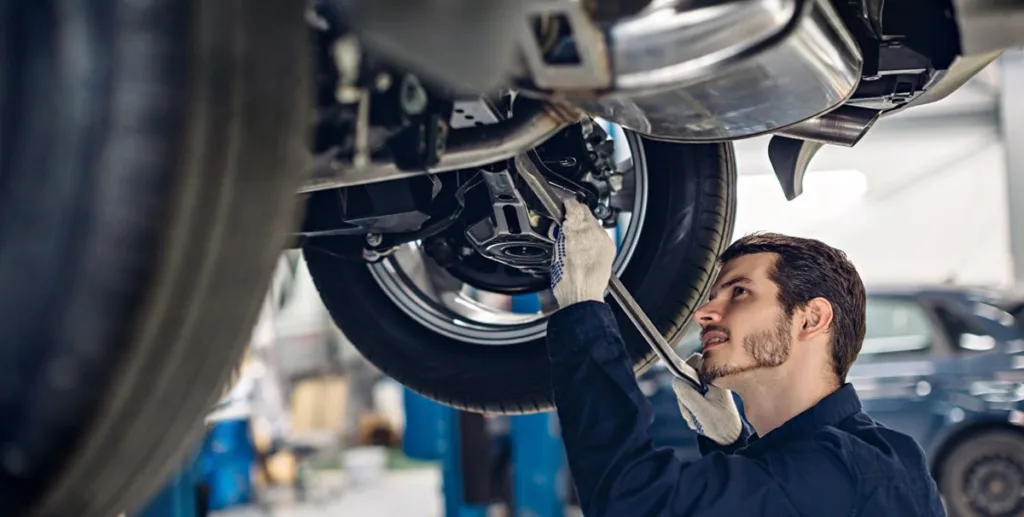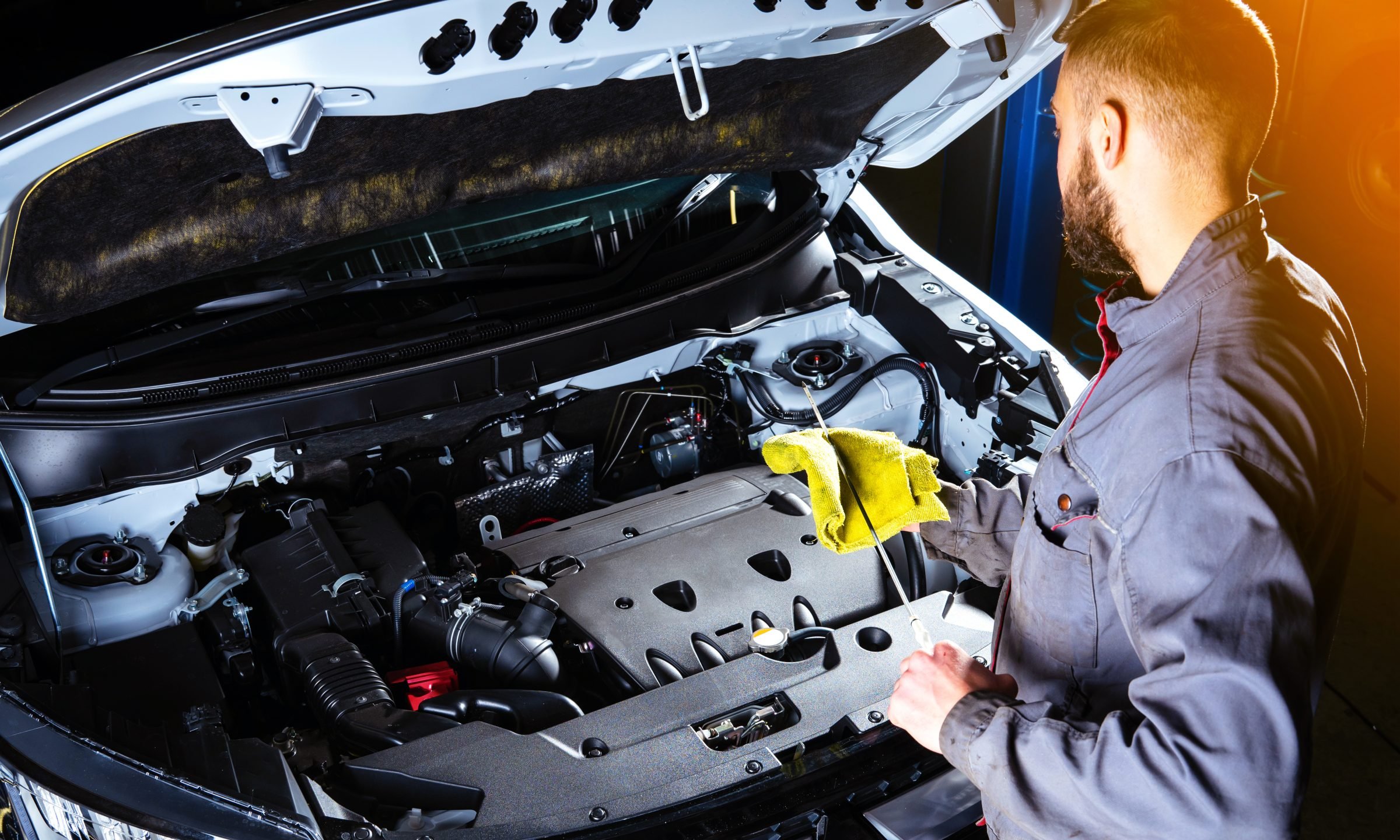All Categories
Featured
When it pertains to maintaining an automobile, recognizing the distinctions in between regular repair and maintenance is essential for vehicle proprietors. Both elements are required for the long life and reliability of your car, however they serve distinctive purposes and are handled in a different way. By recognizing when to carry out regular maintenance versus when to deal with fixings, you can maintain your automobile running efficiently and avoid expensive shocks.
![]()
Regular Maintenance: Prevention is Secret. Regular maintenance involves the normal, precautionary care that your car calls for to prevent future issues. It is commonly scheduled at certain periods, such as every 3,000 or 5,000 miles, based upon your vehicle's manual or producer suggestions. Routine maintenance aids ensure that your car stays in optimal condition, preventing damage from causing significant concerns down the line.
Some typical instances of routine upkeep include:
Oil Changes: Routine oil adjustments are important to maintain your engine oiled and running efficiently. Oil aids reduce rubbing in between engine components, preventing overheating and unnecessary wear. Tire Maintenance: This includes tire rotations, harmonizing, and checking tire stress. Correct tire upkeep makes sure far better fuel performance, taking care of, and tire longevity. Brake Inspections: Routine look at your brakes, including pads and liquid levels, can catch any possible concerns early, avoiding brake failure and ensuring security. Fluid Checks and Top-Ups: Ensuring your auto has the appropriate levels of coolant, transmission liquid, power guiding liquid, and brake fluid is essential for general car health. Air Filter Substitute: Replacing the air filter ensures that your engine gets clean air, which helps it run more efficiently and minimizes engine pressure. Routine upkeep is normally set up and does not entail fixing any kind of damaged components-- it has to do with maintaining every little thing in great functioning order and stopping future failures.
Services: Taking Care Of the Unanticipated. Repair services, on the other hand, are necessary when something fails with your vehicle. Repairs address troubles that affect the automobile's efficiency or security and need to be repaired as quickly as possible. Unlike maintenance, which is preventative, fixings generally take place when parts have actually broken, stopped working, or malfunctioned.
Examples of usual repair work include:
Transmission Issues: If your car is having trouble shifting experiences or equipments sliding, the transmission may require repair work or replacement. Engine Failure: If your engine begins misfiring, getting too hot, or stalling, it may require considerable fixings or substitute of elements like the timing belt, pistons, or seals. Brake Services: While brake pads belong to regular upkeep, if your brakes are making a grinding sound or are no longer operating appropriately, brake fixings will be needed, such as replacing the calipers or the blades. Battery Replacement: If your automobile won't start or the battery is no longer holding a charge, you'll require a replacement battery, which is a repair work. Suspension and Guiding Repair Services: Concerns with the suspension or guiding system-- such as difficulty guiding or a tough time-- can be indicators that components like struts or shock absorbers need repair service. Repairs are typically a lot more costly and immediate than routine maintenance. They are called for when something breaks or malfunctions, which can influence the lorry's functionality and security.
Secret Distinctions In Between Routine Maintenance and Fixings. Timing: Routine maintenance is preventative and carried out at arranged intervals, while repair services are responsive and take place when something goes incorrect. Price: Maintenance is typically much less pricey, as it involves monitoring and changing smaller sized liquids or components. Fixings, particularly significant ones, tend to be much more expensive due to the intricacy of taking care of damaged or malfunctioning parts. Purpose: The objective of upkeep is to maintain your vehicle running well and prevent issues. Fixings, on the other hand, are necessary to repair problems that have currently taken place. Regularity: Routine maintenance occurs consistently at set periods (e.g., every 5,000 miles), while fixings are much less foreseeable, commonly taking place when parts wear or fall short out all of a sudden. Why Both are necessary. Both regular upkeep and repair services are crucial for the long-lasting health of your lorry. Routine upkeep helps keep your cars and truck running smoothly and can prevent many common issues from developing to begin with. By staying on top of set up solutions, you can deal with tiny troubles prior to they transform into costly repair work.
![]()
However, fixings are occasionally inescapable. Despite having the ideal upkeep, components use out over time, and unforeseen concerns can emerge. When repair work are required, resolving them quickly can protect against additional damage and guarantee your vehicle's safety and security and dependability.
Final thought. In recap, understanding the difference in between regular maintenance and repair work aids you take the ideal steps to look after your car. Routine maintenance can conserve you cash by stopping larger issues, while repair services are required when something fails. By staying aggressive with upkeep and attending to repair services when required, you can expand the lifespan of your lorry and make sure that it continues to do at its ideal for several years to find.

Regular Maintenance: Prevention is Secret. Regular maintenance involves the normal, precautionary care that your car calls for to prevent future issues. It is commonly scheduled at certain periods, such as every 3,000 or 5,000 miles, based upon your vehicle's manual or producer suggestions. Routine maintenance aids ensure that your car stays in optimal condition, preventing damage from causing significant concerns down the line.
Some typical instances of routine upkeep include:
Oil Changes: Routine oil adjustments are important to maintain your engine oiled and running efficiently. Oil aids reduce rubbing in between engine components, preventing overheating and unnecessary wear. Tire Maintenance: This includes tire rotations, harmonizing, and checking tire stress. Correct tire upkeep makes sure far better fuel performance, taking care of, and tire longevity. Brake Inspections: Routine look at your brakes, including pads and liquid levels, can catch any possible concerns early, avoiding brake failure and ensuring security. Fluid Checks and Top-Ups: Ensuring your auto has the appropriate levels of coolant, transmission liquid, power guiding liquid, and brake fluid is essential for general car health. Air Filter Substitute: Replacing the air filter ensures that your engine gets clean air, which helps it run more efficiently and minimizes engine pressure. Routine upkeep is normally set up and does not entail fixing any kind of damaged components-- it has to do with maintaining every little thing in great functioning order and stopping future failures.
Services: Taking Care Of the Unanticipated. Repair services, on the other hand, are necessary when something fails with your vehicle. Repairs address troubles that affect the automobile's efficiency or security and need to be repaired as quickly as possible. Unlike maintenance, which is preventative, fixings generally take place when parts have actually broken, stopped working, or malfunctioned.
Examples of usual repair work include:
Transmission Issues: If your car is having trouble shifting experiences or equipments sliding, the transmission may require repair work or replacement. Engine Failure: If your engine begins misfiring, getting too hot, or stalling, it may require considerable fixings or substitute of elements like the timing belt, pistons, or seals. Brake Services: While brake pads belong to regular upkeep, if your brakes are making a grinding sound or are no longer operating appropriately, brake fixings will be needed, such as replacing the calipers or the blades. Battery Replacement: If your automobile won't start or the battery is no longer holding a charge, you'll require a replacement battery, which is a repair work. Suspension and Guiding Repair Services: Concerns with the suspension or guiding system-- such as difficulty guiding or a tough time-- can be indicators that components like struts or shock absorbers need repair service. Repairs are typically a lot more costly and immediate than routine maintenance. They are called for when something breaks or malfunctions, which can influence the lorry's functionality and security.
Secret Distinctions In Between Routine Maintenance and Fixings. Timing: Routine maintenance is preventative and carried out at arranged intervals, while repair services are responsive and take place when something goes incorrect. Price: Maintenance is typically much less pricey, as it involves monitoring and changing smaller sized liquids or components. Fixings, particularly significant ones, tend to be much more expensive due to the intricacy of taking care of damaged or malfunctioning parts. Purpose: The objective of upkeep is to maintain your vehicle running well and prevent issues. Fixings, on the other hand, are necessary to repair problems that have currently taken place. Regularity: Routine maintenance occurs consistently at set periods (e.g., every 5,000 miles), while fixings are much less foreseeable, commonly taking place when parts wear or fall short out all of a sudden. Why Both are necessary. Both regular upkeep and repair services are crucial for the long-lasting health of your lorry. Routine upkeep helps keep your cars and truck running smoothly and can prevent many common issues from developing to begin with. By staying on top of set up solutions, you can deal with tiny troubles prior to they transform into costly repair work.

However, fixings are occasionally inescapable. Despite having the ideal upkeep, components use out over time, and unforeseen concerns can emerge. When repair work are required, resolving them quickly can protect against additional damage and guarantee your vehicle's safety and security and dependability.
Final thought. In recap, understanding the difference in between regular maintenance and repair work aids you take the ideal steps to look after your car. Routine maintenance can conserve you cash by stopping larger issues, while repair services are required when something fails. By staying aggressive with upkeep and attending to repair services when required, you can expand the lifespan of your lorry and make sure that it continues to do at its ideal for several years to find.
Latest Posts
Practical Sophistication for Every Home
Published Apr 20, 25
1 min read
Flooring Professionals Who Treat You Like Household
Published Apr 20, 25
1 min read
Fast & Reliable Auto Repairs - Book an Appointment with Montclare Auto Repair Today
Published Apr 20, 25
2 min read